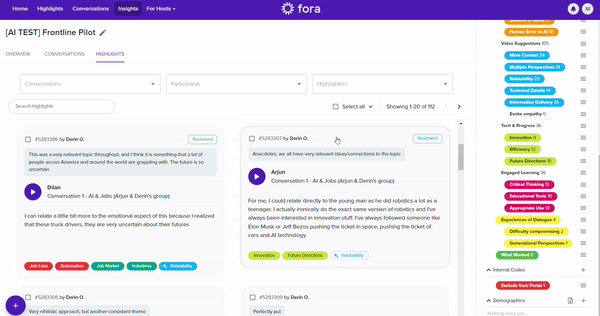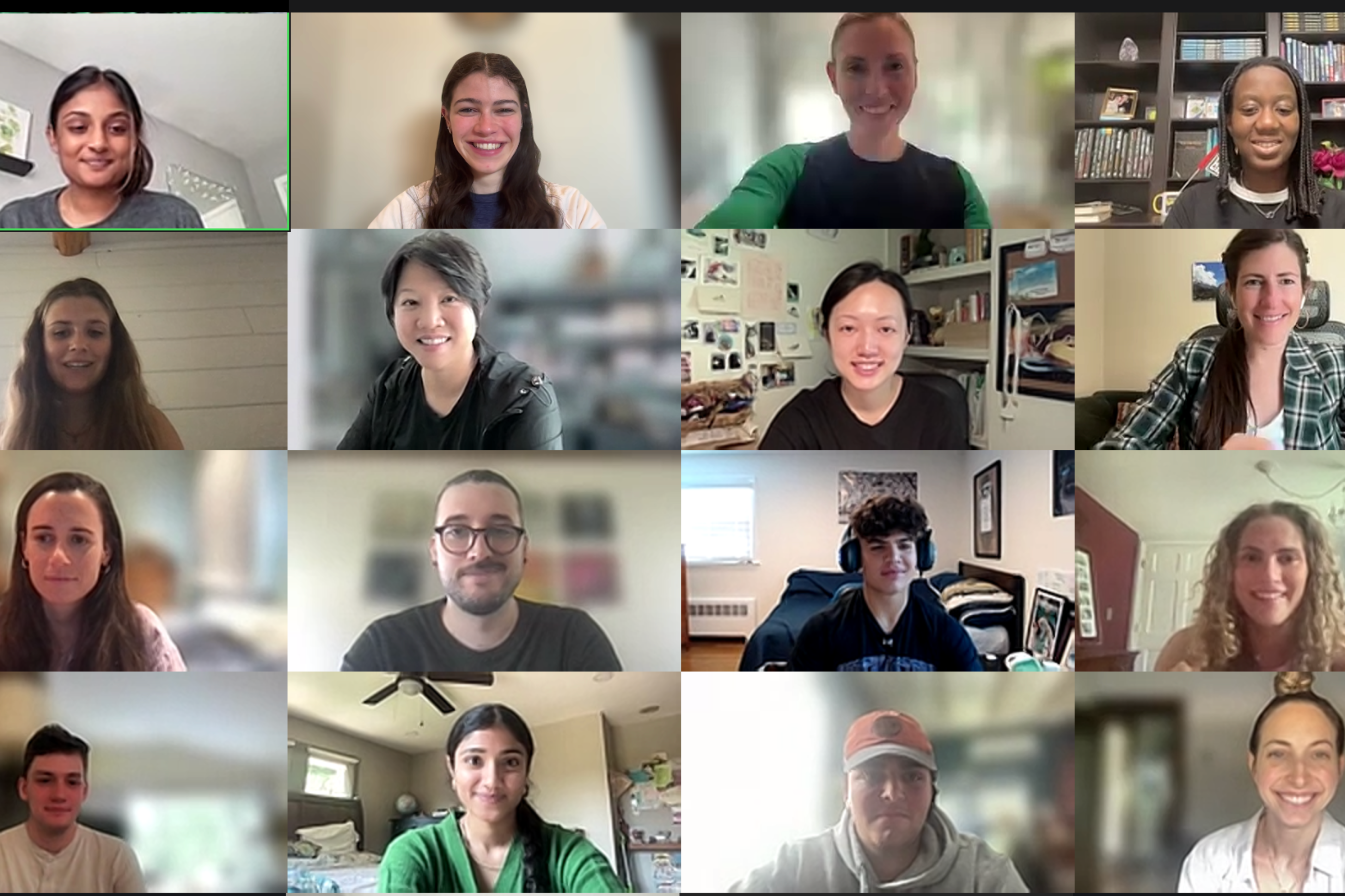In collaboration with FRONTLINE, the PBS documentary series produced at GBH in Boston, the MIT Center for Constructive Communication (CCC) has been exploring how small group facilitated conversations with youth (16-24) can lead to informative documentary journalism that the next generation of news consumers actively seeks out. We were curious to know: How do short-form documentary videos on timely topics influence the civic engagement, political awareness, and social participation of young audiences? To what extent do facilitated small-group dialogues around FRONTLINE documentaries increase empathy, respect, and understanding among participants with differing perspectives on polarized issues? What is the long-term impact of ongoing facilitated dialogues on young participants’ attitudes toward civic discourse and their ability to engage in constructive communication across ideological divides?
“This pilot project with FRONTLINE has been an exciting opportunity to explore the transformative potential of peer-to-peer small group conversations. By engaging young people in thoughtful, facilitated dialogue around pressing social issues, we are not only deepening their connection to the stories that shape our world but also pioneering new ways for media organizations to become more responsive to the communities they serve,” says Dimitra Dimitrakopoulou, head of translational research and principal investigator for this project. “At CCC, we believe that this kind of engagement is key in fostering civic discourse and a sense of joy when meaningfully connecting through dialogue.”
The first step was to recruit nine young people between the ages of 16-24 to be facilitators and receive a series of trainings from CCC’s nonprofit partner, Cortico. These young people were trained in facilitation best practices, sensemaking from qualitative data, and in using the Fora platform, where they uploaded and analyzed the conversations that they led. They also came away with several new sensemaking skills: how to identify key moments to highlight in a conversation, how to create meaningful audio medleys with those highlights, how to create a codebook enhanced by AI tools and tag each highlight with a thematic code.

By having conversations facilitated by peers, CCC researchers were able to learn about how young people engage with media content in casual contexts that mirror their normal environments. For example, facilitators would inquire whether their participants could connect video topics to their own lives (“Have you or has anyone you know been affected by food insecurity?”), how they would have interacted with the video if they found it on Youtube (“Would you share this video with other people in your life?”), and if their opinions were changed by the video (“Have your feelings about the issue changed? Why or why not?”).
One participant noted, “Having these awesome facilitators that we had this summer, who are the same age as the people they were talking to, kind of made it less awkward and more conversational. So, that emotional connection was able to happen. And people were able to just be, you know, like I’m talking to one of my friends rather than this is a formal setting where I can’t really share what’s on my mind.”
Every conversation centered around an early draft of a short FRONTLINE documentary, which covered a variety of challenging topics such as gun control, child hunger, and the impact of AI on jobs. After each group watched the video, our trained student facilitators helped participants connect what they saw in the documentaries to their own personal experiences within small group conversations.
One student who co-facilitated conversations with a friend explained, “For us, differing opinions, although uncomfortable, were essential to a productive conversation. We felt that when our participants had differing opinions, our conversations were a lot more interesting, and a lot of the times when everyone agreed, the conversations were rather dull, and didn’t really produce anything super interesting. So, it was uncomfortable at first when we dealt with differing opinions, but it was eventually worth it.”
Throughout this pilot, CCC and FRONTLINE explored how to build stronger listening organizations that balance the need to reach and engage new audiences, while not compromising journalistic standards. “We are so pleased to partner with MIT and to discover how our journalism can better reach younger audiences,” says editor-in-chief and executive producer of FRONTLINE, Raney Aronson-Rath. “These audiences are curious and eager to understand the world around them, so we look forward to continuing to learn from them and work together on creating engaging short documentaries.”
Curious to hear what students said about this experience? We compiled several representative highlights into a brief audio medley:
Reflecting what she heard from the students, Carla Borrás, a former senior producer for FRONTLINE and current consultant, was deeply grateful, explaining, “We really want to think of this as journalism for younger generations with younger generations…. We are going to have a better democracy and a better world if we can be informed and educated. But that means as storytellers and journalists, we have to do a good job making sure that [our] storytelling resonates.”
To see the final versions of these short-form documentaries, follow FRONTLINE’s work on Youtube or PBS.org.
Special thanks to all the teams across CCC, FRONTLINE, and Cortico who came together to make this dialogue network possible– CCC team: Dimitra Dimitrakopoulou, Marina Rakhilin, Naana Obeng-Marnu, Deb Roy, Andrew Heyward; FRONTLINE team: Carla Borrás, Miles Alvord, Tessa Maguire, Maria Diokno, Nicholas Doyle, Sophie Szydlik, Raney Aronson-Rath; Cortico team: Vy Dao and Kim Mota; and the student leaders: Arjun Rath, Derin Ongur, Dyuthi Aryasomayajula, Isabella (Izzy) George, Jessie Lin, Priyanka Gupta, and Rithika Sivapokaran.
